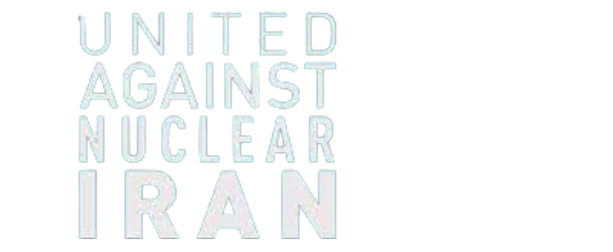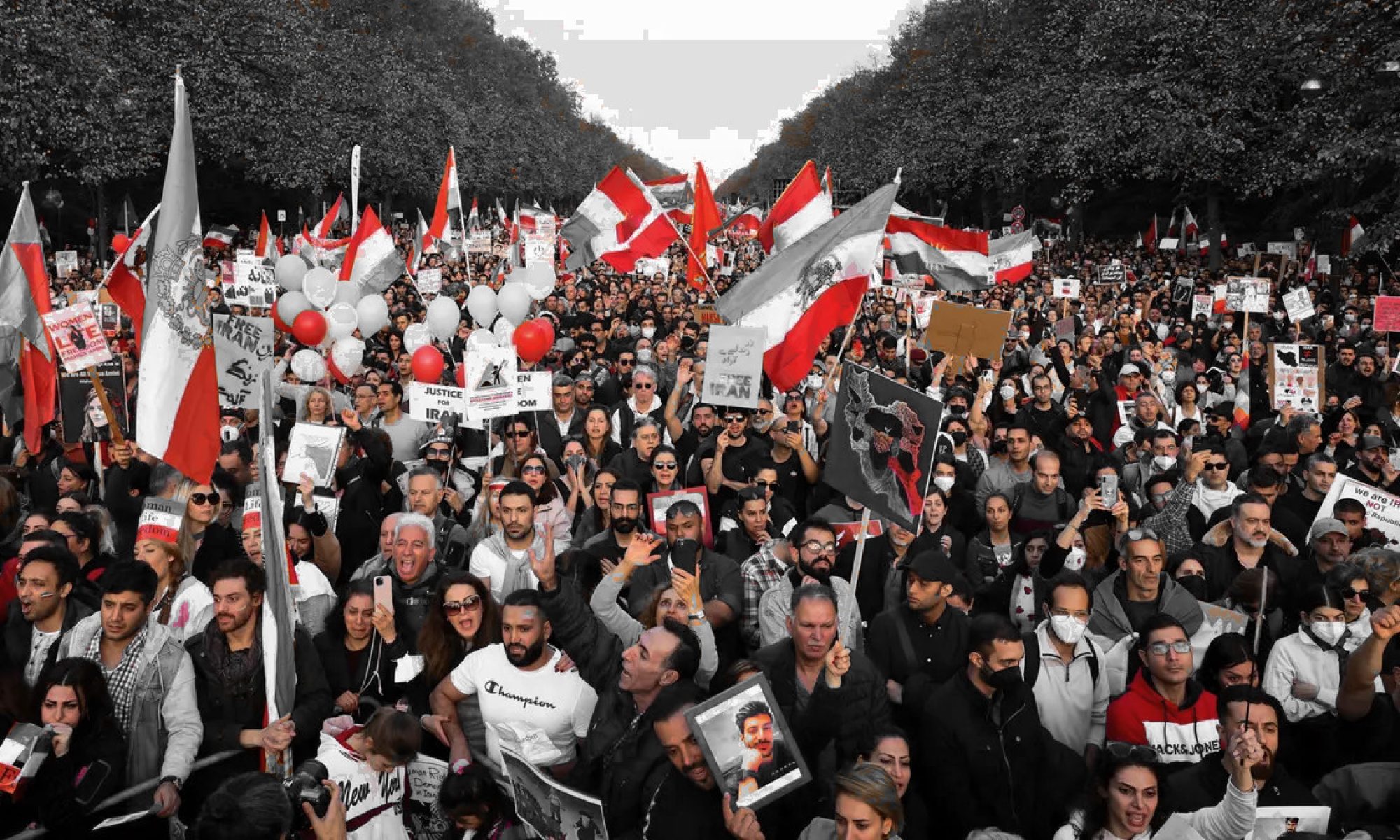#IRGCTerrorists Campaign
We stand united in our mission to designate the Islamic Revolutionary Guard Corps (IRGC) as a terrorist organisation. The IRGC’s involvement in activities that pose grave threats to regional stability, human rights, and global security cannot be ignored. By advocating for this designation, we aim to curtail the IRGC’s support for extremist groups and its destabilising actions. Together, we can send a resounding message to the world that terrorism will not be tolerated, and we will tirelessly work towards a future of peace, justice, and hope for all. Join us in this crucial mission and let us build a safer world together.
Know IRGC Better
About IRGC
The Islamic Revolutionary Guard Corps (IRGC) is a powerful military force in Iran, playing a central role in protecting the regime and shaping domestic affairs through its political influence, security apparatus, economic control, and suppression of dissent.
International Influence
The IRGC’s international influence is marked by its support for terrorist proxy groups, regional destabilisation, involvement in Iran’s nuclear program, human rights abuses, and cyber warfare, raising concerns among the international community and prompting calls for unified action.
Crimes Timeline
The timeline of IRGC crimes reveals a pattern of terrorism, regional destabilisation, cyberattacks, and human rights abuses. From bombings in Lebanon and Argentina to support for proxies in Yemen and Iraq, the IRGC’s actions pose a threat to global security and human rights.

Major General Hossein Salami
Commander-in-Chief
Hossein Salami serves as the Commander-in-Chief of the IRGC, having been appointed to the position in April 2019. Salami has been involved in various roles within the IRGC since the 1980s.

BRIGADIER GENERAL ALI FADAVI
DEPUTY COMMANDER-IN-CHIEF
Fadavi serves as the Deputy Commander-in-Chief of the IRGC, having been appointed to this position in 2018. He previously led the IRGC' Naval force.

Brigadier General Esmail Ghaani
Commander of the Quds Force
Following Soleimani's death, Ghaani was appointed as the Commander of the Quds Force. He had previously served as Soleimani's deputy.
FAQs
The criteria for being placed on a terrorist list can vary depending on the specific list and the jurisdiction in which the list is maintained. However, some common criteria that may be used to determine whether an individual or group should be included on a terrorist list include:
Involvement in acts of terrorism: This can include evidence of direct involvement in planning, financing, or carrying out acts of terrorism, or providing support or resources to individuals or groups that engage in terrorism.
Threat to national security: Individuals or groups may be placed on a terrorist list if they are deemed to pose a threat to national security or international peace and stability. This can include individuals or groups that advocate for violence or terrorism, or that are associated with known terrorist organisations.
Evidence of violent intent: Evidence of violent intent, such as statements or actions that demonstrate a willingness to use violence to achieve political or ideological goals, may also be considered when determining whether to include an individual or group on a terrorist list.
It’s important to note that the specific criteria used to determine whether an individual or group should be included on a terrorist list can vary, and that the criteria may be subject to interpretation or change over time. Additionally, the criteria used to determine whether an individual or group should be included on a terrorist list may differ between countries and international organisations, and it’s important for individuals and entities to understand the specific criteria used by the relevant lists in order to ensure compliance with the relevant regulations.
Sanction lists and terrorist lists are both forms of blacklists that are used to restrict the activities of specific individuals, groups, or entities. However, there are some key differences between the two types of lists:
- Purpose: The primary purpose of a sanctions list is to impose economic or political pressure on a target in order to change its behaviour or signal disapproval of its actions. In contrast, the primary purpose of a terrorist list is to restrict the activities of individuals or groups that are deemed to pose a threat to national security or international peace and stability.
- Criteria: The criteria for inclusion on a sanctions list can vary depending on the specific sanctions regime and the reasons for the sanctions. Sanctions may be imposed in response to human rights violations, weapons proliferation, or other activities that violate international law. In contrast, individuals or groups are typically placed on a terrorist list based on evidence of involvement in acts of terrorism or support for terrorism.
- Consequences: The consequences of being placed on a sanctions list can include restrictions on financial transactions, travel bans, asset freezes, and other measures designed to limit the ability of the target to operate or access resources. In contrast, the consequences of being placed on a terrorist list can include more severe restrictions, such as freezing of assets, criminal charges, and restrictions on the ability to travel or operate in certain countries.
Overall, while there are some similarities between sanctions lists and terrorist lists, they serve different purposes and have different criteria and consequences. It’s important for individuals and entities to understand the specific restrictions and requirements of each type of list in order to ensure compliance with the relevant regulations and minimise the risk of penalties or other legal consequences.
Yes, the employees of an entity that is subject to sanctions may be affected by the sanctions. Depending on the specific nature of the sanctions, employees may face restrictions on their ability to travel, access financial resources, or perform their jobs. For example, if an entity is subject to an asset freeze, employees may not be able to access their salaries or other financial resources. If an entity is subject to trade restrictions, employees may not be able to access certain products or technology that are necessary for their work.
However, it’s important to note that the exact impact of sanctions on employees will depend on the specific nature of the sanctions and the employees’ roles within the entity. In some cases, the impact may be minimal, while in other cases, it may be more severe. Additionally, some employees may be more directly affected than others, depending on their specific responsibilities and involvement with the targeted entity.
It’s also worth noting that sanctions can have indirect effects on employees, such as reducing the overall economic activity in the country, which can lead to unemployment or other economic difficulties. In some cases, the impact of sanctions on employees can be significant, and it’s important for employees to be aware of the sanctions regulations and their potential impact on their employment.
When a person or entity is sanctioned, they may face a range of restrictions and penalties, depending on the nature and severity of the sanctions imposed. Some common consequences of sanctions can include:
- Asset freezes: This can involve the freezing of financial assets, such as bank accounts or investments, held by the target of the sanctions. This can make it difficult or impossible for the target to access their financial resources.
- Travel bans: Sanctions may also include travel bans, which prevent the target from travelling to certain countries or entering certain territories.
- Limitations on financial transactions: Sanctions can limit or restrict the ability of the target to engage in financial transactions, such as transferring funds or accessing financial markets.
- Export/import restrictions: Sanctions may also include restrictions on the export or import of goods and services, which can limit the target’s access to certain products or markets.
- Access to technology: Sanctions may limit an entity’s access to technology or technology-related products, such as software, hardware, or services. This can impact the entity’s ability to operate effectively.
- Reputational damage: The imposition of sanctions can also damage the reputation of the target, making it difficult for them to conduct business or operate effectively.
- Limitations on personnel: Sanctions may also impose restrictions on an entity’s personnel, such as travel bans or limitations on the ability of employees to work or operate in certain countries.
It’s important to note that the exact consequences of sanctions will depend on the specific individuals or entities targeted, the reasons for the sanctions, and the nature of the sanctions imposed. In some cases, the consequences of sanctions can be severe and have a significant impact on the target’s ability to operate or access resources. In other cases, the effects may be more limited or symbolic.
It’s also worth noting that being placed on a sanctions list can have indirect consequences, such as making it more difficult for the target to find business partners, access financial resources, or participate in international trade. In some cases, the impact of being placed on a sanctions list can be far-reaching and long-lasting, and it’s important for individuals and entities to understand the sanctions regulations and their potential impact on their activities.

